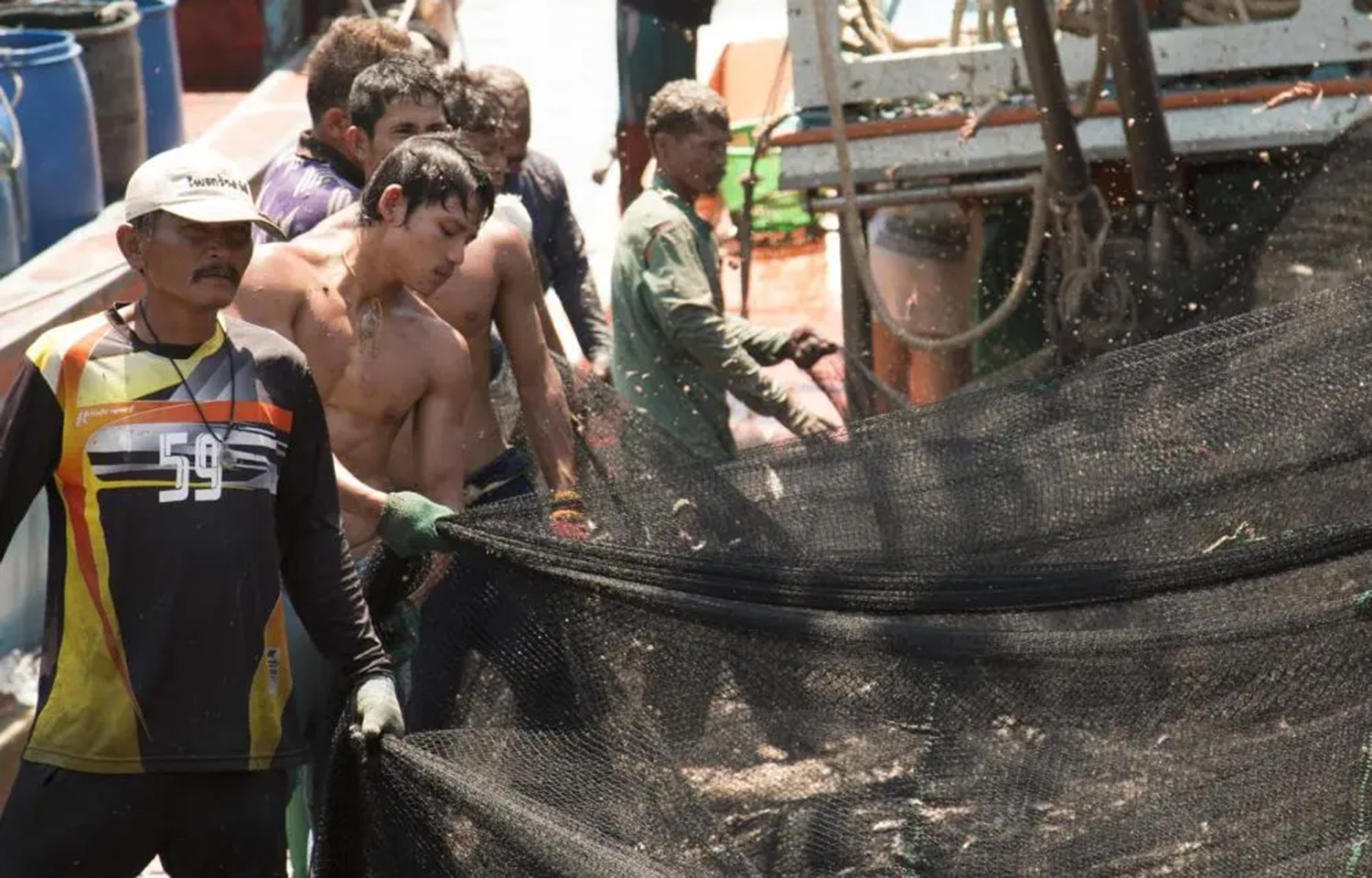Chris Williams is a fisheries expert with the International Transport Workers' Federation's fisheries section.
In recent years, the Marine Stewardship Council (MSC) has become a prominent figure in the realm of sustainable seafood, promoting eco-friendly fishing practices through its certification program.
The blue MSC label, found on numerous seafood products globally, is meant to assure consumers that the fish they are buying comes from well-managed and sustainable fisheries. However, an in-depth examination of the current status of tuna vessels participating in the MSC program reveals a concerning gap: the inadequate assurance of fair and safe working conditions for fishers based on analysis of the primary data published by MSC for 3,327 listed tuna vessels.
The paper, “Is tuna ecolabeling causing fishers more harm than good?” – published on Tuesday, 3 September, in Nature: Ocean Sustainability – tuna vessels reported for forced labor present a stark contrast between MSC's proclaimed standards and the harsh realities faced by fishers. The research is filled with vessels implicated in severe labor violations, including cases handled by the International Transport Workers’ Federation (ITF) – a clear demonstration of the pressing need for the MSC to address the human rights abuses occurring within its certified supply chains.
Examining the Evidence
The vessels listed include Win Far 636, Zhong Da 2, and others that are embroiled in serious allegations ranging from forced labor to untreated workplace injuries. For instance, the Taiwan-flagged vessel Win Far 636 is under investigation for the death of an observer who had reported harassment and feared for his life. Similarly, vessels like Zhong Da 2 and Hangton 115, flagged in Fiji, have been highlighted by organizations such as Greenpeace and the Indonesia Migrant Workers Union for instances of forced labor. These incidents date back as far as 2019, highlighting clear failures in the effectiveness and thoroughness of MSC’s vetting and monitoring processes.
Even more alarming is the inclusion of vessels such as Montecelo, flagged to El Salvador, and Dolores 873, flagged to the Philippines, both cited for failing to pay wages and for untreated workplace injuries leading to disability. Such violations are not just historical anomalies but are ongoing issues, as evidenced by recent cases in 2023 and 2024.
The consistency of these reports over time suggests systemic issues within the industry that MSC’s current measures are failing to address.
The Illusion of Assurance
The MSC’s certification is perceived by many consumers as a guarantee of not only sustainable fishing practices but also ethical labor standards. This perception is bolstered by MSC’s own marketing and public relations efforts. However, the reality, as demonstrated by the vessels in the research, is that the MSC’s focus remains predominantly on environmental sustainability, often at the expense of vetting labor rights and human welfare.
The cases of the CHARLOTTE M, SVETLANA M, NATALIA VICTORIA, DAYNA S, and to a lesser extent VIKI K from the U.S., all certified under MSC and all involved in ongoing cases handled by an ITF inspector in Seattle, Washington, U.S.A., illustrate this point vividly. These vessels have been reported for unpaid wages and long-term captivity, highlighting severe labor exploitation. The fact that these vessels received MSC certification despite such egregious violations points to significant oversights in the certification process.
As such, the MSC could influence and undermine criminal and civil enforcement through the repetition of clients’ unaudited assurances. The focus of the MSC fisheries standard is environmental, and the scope excludes fishing with forced labor as a disqualification requirement, instead providing guidance on “self-disqualification.” This is wholly inadequate for a standard trumpeted as being “aimed at providing transparency and enhancing assurance of the absence of egregious labor practices from fisheries and supply chains that are under assessment or certified to MSC standards.” Eco-labeling assurances, therefore, provide little or no confidence if the businesses making the product are not identified.
Certification Processes and Oversight
The MSC certification process involves “rigorous assessments” by “independent third-party auditors” who evaluate fisheries based on sustainability criteria. However, these assessments do not delve deeply into the working conditions aboard the vessels. This oversight can be attributed to the MSC’s historical focus on environmental criteria, leaving labor issues to be addressed only superficially, if at all.
The inclusion of vessels currently under forced labor investigation in the MSC-certified supply chain further underscores the inadequacy of MSC’s procedures. The fact that these vessels are allowed to continue operating under the MSC label while they are simultaneously under investigation for severe labor violations highlights a critical flaw in the program: the lack of immediate and stringent measures to suspend or revoke certifications pending the resolution of such serious allegations.
The Need for Comprehensive Reform
The MSC must require mandatory and regular audits of working conditions, transparent reporting mechanisms for labor abuses, and swift action against violators if it is to make any claims at all regarding forced labor and MSC products. The current system, which allows vessels under investigation for forced labor to remain certified, is unacceptable, misleads consumers, and undermines the credibility of the MSC label.
Moreover, there needs to be a greater emphasis on collaboration with labor rights organizations and advocacy groups. Organizations like the ITF, the Environmental Justice Foundation (EJF), Global Labor Justice (GLJ), Greenpeace and the Indonesia Migrant Workers Union have been instrumental in bringing labor abuses to light. The MSC should work closely with these organizations to develop a genuinely holistic approach to sustainable fishing; one that fully integrates human rights considerations.
Consumer Awareness and Responsibility
Consumers can also play a crucial role in driving change. While the MSC label has been a convenient indicator of sustainability, it is clear that it cannot be relied upon to assure fair labor practices. Consumers must demand more comprehensive assurances from certification bodies and be willing to support brands that demonstrate a genuine commitment to both environmental and social responsibility.
Public awareness campaigns and increased media scrutiny can also put pressure on the MSC and the broader seafood industry to prioritize worker welfare. By highlighting the stories of exploited fishers and the evident gaps in current certification processes, the public can push for meaningful reforms that ensure all aspects of sustainability are addressed.
Conclusion
The evidence presented in the research paper serves as a stark reminder that the MSC’s certification, while primarily environmental, falls significantly short in protecting the human rights and welfare of fishers.
The MSC must urgently reform its certification processes to incorporate stringent labor standards and transparent oversight mechanisms if it is to make any claims regarding forced labor. Until these changes are made, the MSC label will remain an incomplete assurance and false standard-bearer for ethical fishing, leaving both consumers and fishers vulnerable to the hidden costs of unsustainable practices.







